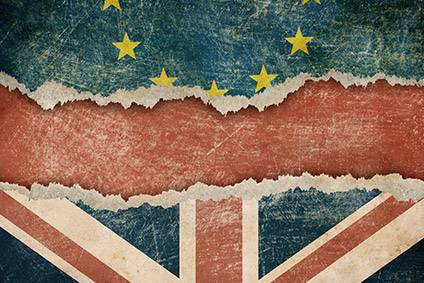
The UK’s fashion, textile and retail sectors have voiced concern over the continuing Brexit uncertainty following the signing of a draft withdrawal agreement between Britain and the European Union (EU).
The ‘outline agreement’ was rubber-stamped by the UK government’s cabinet on Wednesday evening (14 November) amid reports of significant opposition from some cabinet ministers. A number of ministers have since resigned in protest at the deal, including Brexit Secretary Dominic Raab, followed by Work and Pensions Secretary Esther McVey, along with several junior ministers and ministerial aides.

Discover B2B Marketing That Performs
Combine business intelligence and editorial excellence to reach engaged professionals across 36 leading media platforms.
Brexiteer Jacob Rees-Mogg also submitted a letter of no confidence in the Prime Minister yesterday, with the number of publicly declared rebels thought to be over 20.
Under the outline deal, a transition period to the end of 2020 would mean that all existing EU “regulatory, budgetary, supervisory, judiciary and enforcement instruments and structures” will continue to apply within the UK, including rulings made in the Court of Justice of the EU. “Frictionless trade” between the UK and EU would continue as now, with the UK staying within the EU customs union.
In a statement following the news of the draft agreement, Carolyn Fairbairn, director-general of the Confederation of British Industry (CBI), said that after 20 months of debate, the agreement by Cabinet signals progress.
“If passed, it moves the UK one step away from the nightmare precipice of no deal and the harm it would cause to communities across the country. Securing a transition period has long been firms’ top priority and every day that passes without one means lost investment and jobs, hitting the most vulnerable hardest. Time is now up. This deal is a compromise, including for business, but it offers that essential transitional period as a step back from the cliff-edge.”

US Tariffs are shifting - will you react or anticipate?
Don’t let policy changes catch you off guard. Stay proactive with real-time data and expert analysis.
By GlobalDataFairbairn, however, says more clarity on the final relationship is needed, and uncertainty remains high, but reaffirms that the draft deal is “an important step forward.”
“Transition and the backstop are not the intended permanent solutions for either side, but should pave the way for more work on the future deal. This must secure frictionless trade, ambitious access for our world-beating services, and a say over future rules.
“The UK has had many months of discussion and division. A long journey still lies ahead but now is the time for decisions. And the first decision is to avoid no deal.”
The UK Fashion and Textile Association (UKFT), meanwhile, also suggests the current political turmoil has created a great deal of uncertainty for industry.
“From a business perspective the draft withdrawal agreement provided much-needed clarity and would have allowed the sector to plan for at least the next two years,” Adam Mansell, CEO of the UKFT told just-style. “However, the current political situation means the future of the agreement as it currently stands is precarious at best.
“The commitment in the political declaration on the future relationship to deliver a free trade area with no tariffs was very welcome. However, the detail of any new relationship will be very important.”
The British Retail Consortium (BRC) offered a similar view in a statement issued this morning.
“Until an agreement is approved by both Parliament and EU member states, we have continuing uncertainty and the risk remains of consumers facing higher prices and reduced availability of products in March 2019. We need to secure a withdrawal agreement that can protect frictionless, tariff-free trade, throughout the transition period.”
The deal will now need to be ratified by the UK’s Parliament and the other 27 EU member states. Prime Minister Theresa May is also now facing an attempted coup and a further wave of resignations today, with another general election or a referendum on a proposed deal all possibilities being discussed.





